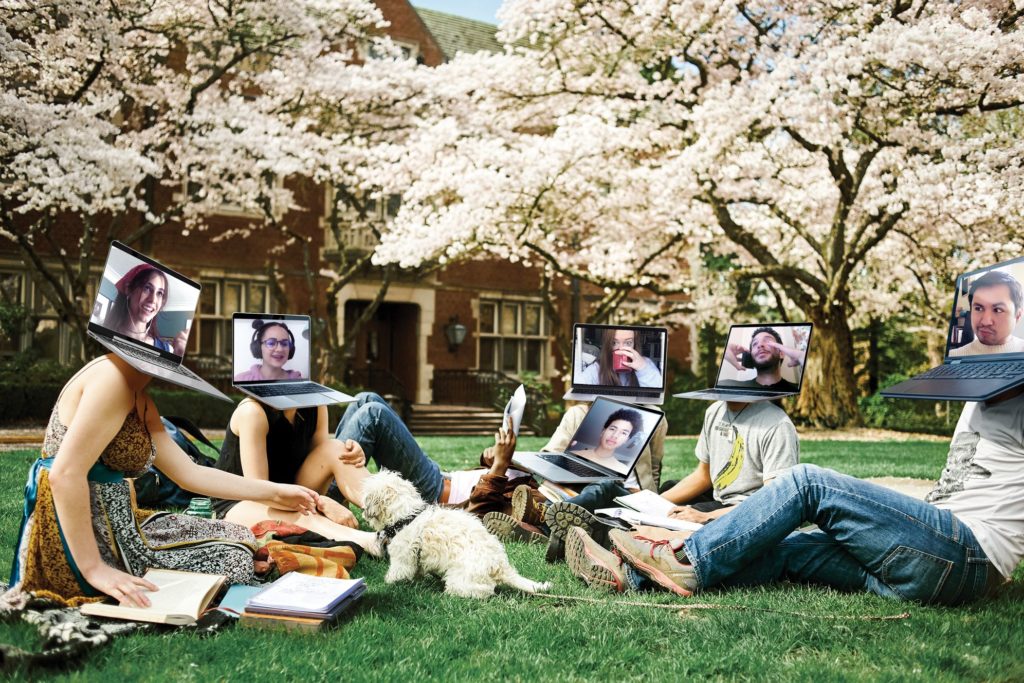New Responsibility for the Peace Corps
Scott Galloway predicts a handful of elite cyborg universities will soon monopolize higher education
by James D. Walsh
New York Post, May 11,2020
In 2017, Scott Galloway anticipated Amazon’s $13.7 billion purchase of Whole Foods a month before it was announced. Last year, he called WeWork on its “seriously loco” $47 billion valuation a month before the company’s IPO imploded. Now, Galloway, a Silicon Valley runaway who teaches marketing at NYU Stern School of Business, believes the pandemic has greased the wheels for big tech’s entrée into higher education. The post-pandemic future, he says, will entail partnerships between the largest tech companies in the world and elite universities. MIT@Google. iStanford. HarvardxFacebook. According to Galloway, these partnerships will allow universities to expand enrollment dramatically by offering hybrid online-offline degrees, the affordability and value of which will seismically alter the landscape of higher education. Galloway, who also founded his own virtual classroom start-up, predicts hundreds, if not thousands, of brick-and-mortar universities will go out of business and those that remain will have student bodies composed primarily of the children of the one percent.
At the same time, more people than ever will have access to a solid education, albeit one that is delivered mostly over the internet. The partnerships he envisions will make life easier for hundreds of millions of people while sapping humanity of a face-to face system of learning that has evolved over centuries. Of course, it will also make a handful of people very, very rich. It may not be long before Galloway’s predictions are put to the test.
While the interview was mainly about on-campus (and off-campus) education and the demise of higher education as we know it, the interview ended with this question and reply by Galloway. Note: JC
Will other experiences fill those gaps in humanity? What’s going to replace that campus experience?
There’s an opportunity for something like an AmeriCorps, a Peace Corps, or the Latter-Day Saints mission. Think about mandatory conscription in Israel or Switzerland. It feels like there’s an incredible moment in time for an opportunity to have some sort of Corona Corps, whether we enlist an army of 18-year-olds for tracing or for some sort of social service. Give them the opportunity to serve in the agency of the greatness of others because, if we’re trying to make lemonade out of lemons here, the opportunity might be to mature a generation of people who, when standing next to each other, aren’t focused on their differences.
I think a lot of the progress we made in the ’50s and ’60s, in terms of legislation and bipartisan efforts, was a function of the fact that many of our elected leaders had served in uniform and they felt a sense of America first. Their progressive or their conservative values took a back seat to do what they felt was right for America. It feels like a really wonderful opportunity to create a generation that develops greater cooperation, a comity of man, appreciation for what it means to be an American through some sort of social service.

If he is talking about Volunteer work, fine. But, if he is talking about ” public service conscription” that is very dangerous. If a Volunteer force or an expanded Americorps to do specific tasks to prevent or help limit an epidemic or pandemic, is being suggested, that is a good thing. The idea that if young people are drafted into service, they will all get along is a myth perpetrated by The National Commission on Military Service, etc. We need to hear from minority men who were drafted into the miitary to fight in Vietnam.
If there is public work to be done, the first thought should be who can be paid to do it.